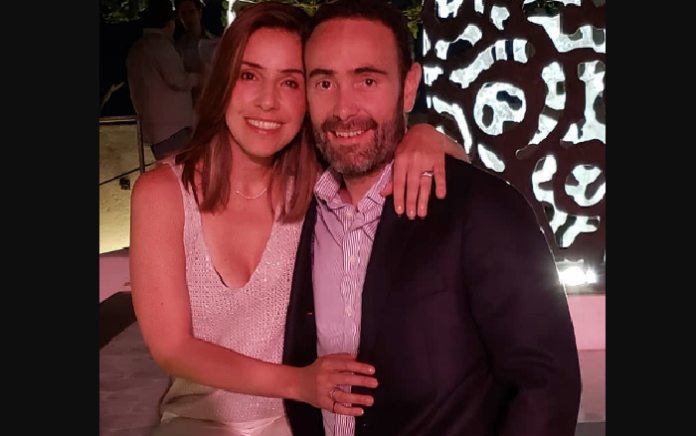Roxana Elizabeth Caro Elenes was born on January 17, 1978, to Rafael Caro Quintero, a Mexican drug dealer, and his wife, Maria Elizabeth Elenes Lerma. Roxana Elizabeth Caro Elenes was born in 1978 to Rafael Caro Quinero and Maria Elizabeth Elenes Lerma. She is 42 and married to Jesus Briseno Gomez Espana.
Caro Quintero, a member of the Guadalajara Cartel, was an important figure. Rafael became famous in the 1980s when he murdered DEA agent Enrique Camarena.
Department of the Treasury, and the DEA. Roxana Liz Caro Elenes, despite the attention she has received, has maintained a relatively low-key personal life in comparison to her brothers. This article examines her family connections and her involvement in business operations related to her father’s network of financial interests.
This article explores Roxana, her family, and her relationship with her dad, as well as how Roxana was affected by her family.
Caro Quintero and her Children
Rafael Elizabeth Caro Quintero is well known in Mexico’s criminal past as the “Narco De Narcos.” He had four children with his wife, Maria Elizabeth Elenes Lerma:
- Hector Rafael Caro Elenes (born December 18, 1975)
- Roxana Eliza Caro Elenes
- Henoch Emilio Caro Elenes (born March 15, 1980)
- Mario Yibran Caro Elenes (born June 11, 1983)
Maria Elizabeth Elenes Lerma, according to U.S. Government investigations, was the central figure managing Caro Quintero’s financial operations. In 2013, she and her four children were identified as being part of a network consisting of 15 companies, which was allegedly used to wash assets in Guadalajara.
The role of Roxana Eliza Caro Elenes within the Family Network
1. Marriage and Family Business Ties
Roxana Eliza Caro Elenes was married to Jesus Briseno Gomez Espana. His family became involved in the Caro-Elenes business ventures. One key company was El Bano de Maria S. de R.L. El Bano de Maria S. de R.L. This company specializes in soaps and creams.
Martha Briseno Gomez Espana and Martha Gomez Espana Gonzalez were the first shareholders of the company. In 2004, these relatives left the company, passing control over to Denisse Villa. She is Roxana’s sister. Denisse was the legal representative for the company that later appeared on U.S. sanctions lists as being linked to money laundering.
2. Property and Real Estate
Roxana’s Elizabeth business connections were also tied to the family properties. She bought the 37-hectare Casas Blancas property with her brothers Henoch & Mario in Zapopan, Jalisco, in 2008. The U.S. government began to scrutinize this real estate and other holdings.
Caro-Elenes’ siblings owned a ranch-style estate in Zapopan. It was known under different names, such as El Tigre Nixticuilt and La Salitrera. These properties showed how the Caro-Elenes family had diversified their assets by investing in land development and property.
The Other Caro-Elenes Sisters and Their Paths
1. Hector Rafael Caro Elenes
Hector is the oldest child and has a career in equestrian sport. He has competed on a professional basis, winning gold at the Central American and Caribbean Games 2006 in Colombia. Hector represented Mexico in the 2008 Beijing Olympic Games.
Hector’s involvement in companies like CX Shoes and joint ventures with siblings went beyond sports. Denisse Buenrostro played a key role in the management and operation of El Bano de Maria.
2. Henoch Emilio Caro Elene
Henoch Emilio, born in 1980, also had a career in property and business. He was the owner of a commercial property at Plaza Real del Valle, Tlajomulco de Zuniga. Together with Roxana, Mario, and other investors, he purchased the Casas Blancas.
3. Mario Yibran Caro Elene
Mario, the youngest child, was also on the U.S. Treasury List in 2013. Mario, like his siblings, was also linked to properties and businesses owned by the family that were identified during investigations.
Sanctions and Business
In 2013, the Office of Foreign Assets Control of the U.S. Department of the Treasury (OFAC) placed the Caro-Elenes Family under the Kingpin Act. This action restricted transactions and froze assets with U.S. banks and companies.
The enterprises represented a variety of industries, ranging from fashion, cosmetics, and energy to hospitality and tourism. All of these businesses were allegedly used as a way to hide illegal money flows linked to drug trafficking proceeds.
The conclusion
The life of Roxana Elizabeth Caro Elene demonstrates how family bonds can influence a person’s destiny. She was raised in a family that included one of Mexico’s infamous drug lords. Her name continues to appear on official sanction lists and in property investigations, despite the fact that she has a low profile.
Roxana Elizabeth Elene Caro may not be in the spotlight anymore, but the legacy left by her family will ensure that she is forever linked to one of Mexico’s most talked-about criminal chapters.




